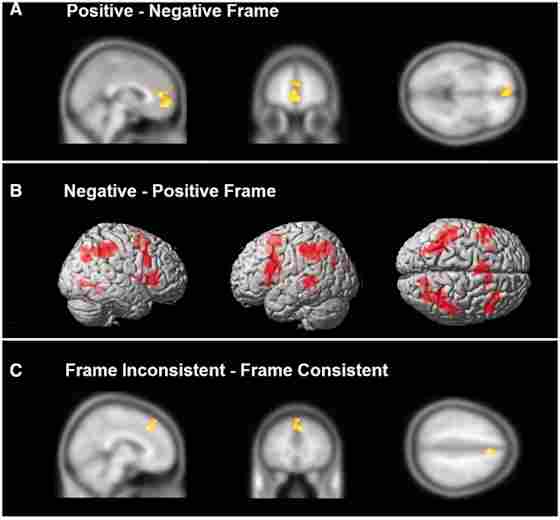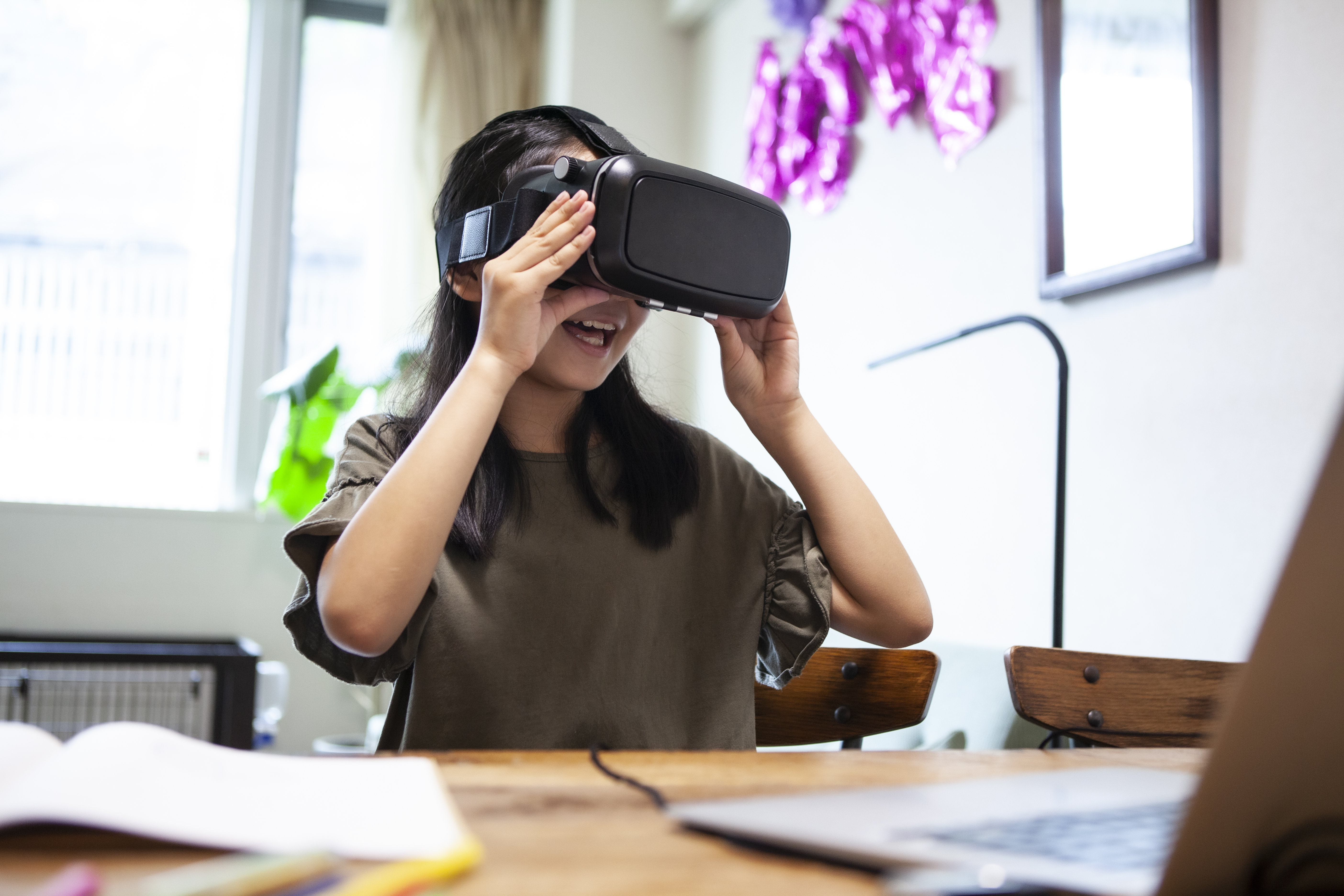Overview
Attribute framing refers to whether a statement has a positive or negative undertone. Participants in this study were more likely to agree with positive statements about themselves than negative ones. These evaluations were compared to fMRI imaging of specific brain regions associated with reflexive and reflective responses. Positive statements were more closely associated with reflexive systems, while negative ones were associated with reflective systems. Results, compared with personality and intelligence, show individual differences factor into making decisions about social attributions. Overall, findings demonstrate individual behavioral and neural responses depend on whether personal attributes are framed negatively or positively.
(A) Shown at the overall group level are regions involved in evaluating positively framed items over negatively framed items. This contrast resulted in a majority of regions that have been associated with reflexive processing. (B) The reverse contrast of negatively framed minus positively framed items elicited greater activation within reflective processing regions in lateral prefrontal and parietal cortex among other areas. (C) Region of the ACC associated with frame inconsistent responses and reflective processing.



